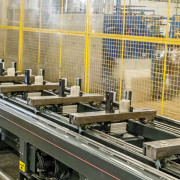Three things not to say in a job interview
How many articles have you read about what you SHOULD do in a job interview situation? If you’re anything like me, you’ve probably read your fair share. As such, it’s probably now more useful for you to read up on what you shouldn’t do rather than what you should! Here’s a modest list of just three things you probably shouldn’t say when you’re trying to get hired for a new opportunity.
Some things are best left unsaid.
We’ve been in the recruitment game for over 20 years so we’ve seen and heard a lot from our clients about the way that our candidates conduct themselves in their job interviews. Let me preface this by saying that being confident in a job interview is a good thing. Ideally you’re comfortable enough in an interview situation to talk calmly and in detail about your previous work experience. With that being said, there are some topics you should navigate carefully. For example;
1) Don’t talk negatively about your current/past employer.
If you do this, whether intentionally or by mistake, you give your potential employer the wrong impression. It immediately paints you as a negative person who focuses on the downsides of jobs and dwells on them. In some cases, it may dissuade your potential employer from hiring you. They may worry that you’ll later begin to resent them after trying to find faults in the new job. Focus on the new job that you’re trying to land, even if you hated your previous one.

Bad-mouthing your current employer might be cathartic for you, but your potential employer isn’t a therapist – so this could backfire big time.
If you find yourself about to mention how “little support you received from senior management”, try to rephrase that sentence to project positively about the new job instead. For example, say how you’re looking forward to being supported by and working alongside senior management because you know the company has a good reputation. If you’re about to blurt out how “terrible your coworkers were” at your previous job, instead say how excited you are at the prospect of integrating into a new workplace, working as part of teams and making new connections.
2) Don’t be too quick to talk money.
You know it, and your employers know it too. Money is important and the main driving force behind why most of us work in the first place. But employers also want to see that you’re choosing to work with them for other reasons, such as for the company culture or for professional development opportunities. Don’t be the first one to bring up salary. Let the employer get to that when they’re ready to discuss it. If you jump the gun and begin directing the flow of the interview into salary, an employer may quickly think that you’re disinterested in the job itself and are solely focused on the remuneration package. The end result is that you’ll usually give off the wrong impression and potentially hurt your chances.

It’s a job interview, so money is going to come up sooner or later. Be patient and let your employer bring it up first.
When you’re talking money with a potential employer, you must also ensure that you’re being realistic and know what sort of salary to expect – see our separate blog post on this here.
3) Don’t let the interview become an interrogation.
You’re not only there to answer questions. Similarly, an employer isn’t just trying to hear your answers in the interview situation. They’re also evaluating how you converse and how comfortable you are when put on the spot. If appropriate, try and infuse a little humour into some of your answers. Don’t just answer with ‘Yes’ or ‘No’ – try to elaborate and provide some context or evidence to support your answer. You also shouldn’t be afraid to be conversational if the employer seems to want to have a more casual discussion. If you can, also attempt to come up with your own questions along the way. Employers like to see that you have a genuine interest in the company and the job. Asking questions is a surefire way to communicate this from the outset while also showcasing your conversation skills.

The best interviews are the ones where the employer doesn’t have to speak for 80% of the time – try to ensure that the discussion is a balanced, engaging one.
Do you have more to add to this list? We’d love to get your input from your own experiences. Drop us a line in the comments below or on social media.
Article by Dario Luca, Marketing Coordinator
















Leave a Reply
Want to join the discussion?Feel free to contribute!